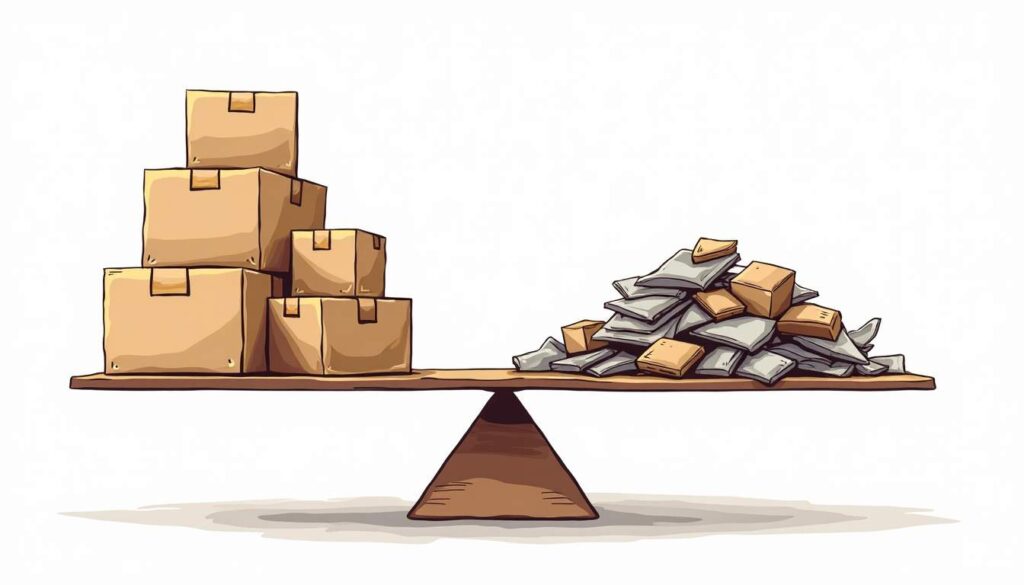Moving is often ranked as one of life’s most stressful events, even more so than divorce or changing jobs for many Americans. With approximately 40 million people moving each year in the U.S. alone, the demand for moving services is substantial and growing. Yet, when it comes to choosing a moving company, many consumers face a dilemma: should they opt for fair pricing or chase the cheapest deal available? Understanding the difference between these two approaches is crucial to ensuring a smooth, safe, and cost-effective move.
In this article, we’ll explore why fair pricing matters more than just cheap moving offers, how to spot the difference, and what you should expect when budgeting for your next move. Along the way, we’ll reference key industry statistics and trusted sources to help you make an informed decision.
Understanding the Moving Industry Landscape
The moving industry in the United States generates nearly $17 billion in annual revenue and employs over 136,000 people, reflecting the sheer scale and complexity of the business. The average cost of a local move hovers around $2,300, while long-distance moves can range widely, with many costing approximately $4,600 or more depending on distance and household size.
These figures highlight that moving is a significant financial undertaking for most households. However, the cost can vary dramatically based on the level of service, distance, and the company chosen. The temptation to go for the cheapest option is understandable, but it often comes with hidden risks and additional costs down the line.
For a deeper dive into the industry’s economic footprint, Wifitalents offers comprehensive moving industry statistics that shed light on pricing trends and consumer behaviors.
The moving industry is not just about transporting belongings; it encompasses a wide range of services that cater to various customer needs. For instance, many companies offer packing and unpacking services, storage solutions, and even specialty moving for items like pianos or fine art. These additional services can significantly impact the overall cost of a move but can also provide peace of mind, especially for those who may not have the time or resources to manage the logistics themselves. Moreover, with the rise of technology, many moving companies now utilize apps and online platforms to streamline the booking process, making it easier for customers to compare prices and services at their convenience.
Furthermore, the industry’s landscape is continually evolving, influenced by factors such as economic conditions, housing market trends, and even demographic shifts. For example, millennials and Gen Z are increasingly becoming the primary movers in the market, often seeking flexible and affordable moving solutions that align with their lifestyles. This shift has prompted many companies to adapt their services, offering more customizable options and transparent pricing structures to meet the demands of a younger, tech-savvy clientele. As the industry continues to grow and adapt, understanding these trends can help consumers make informed decisions when planning their next move.
Why Cheap Moving Can Cost You More
At first glance, a low moving quote might seem like a great deal. However, cheap moving services often compromise on quality, reliability, and safety. Many budget movers cut corners by using inexperienced labor, inadequate equipment, or insufficient insurance coverage. This can lead to damaged belongings, delayed deliveries, or even lost items.

Statistics show that about 5% of moving service transactions result in disputes, mostly related to damages and delays. When a mover offers a suspiciously low price, it’s often a red flag that they might not be fully equipped to handle your move professionally. In the worst cases, customers end up paying more to repair or replace damaged goods or to hire another company to complete the job.
Moreover, hidden fees are common in cheap moving quotes. These might include charges for packing materials, fuel surcharges, or additional labor that weren’t disclosed upfront. Such surprises can quickly inflate your moving budget beyond what you initially planned.
The Emotional Cost of a Poor Move
Moving is already a stressful experience — in fact, 69% of Americans report that moving is more stressful than divorce or job change. Choosing a cheap moving service that fails to meet expectations can add unnecessary anxiety and frustration during an already challenging time.
Reliable movers with fair pricing typically offer transparent contracts, clear communication, and professional handling of your belongings. This peace of mind is invaluable and often worth the extra cost.
What Fair Pricing Really Means in Moving
Fair pricing is about paying a reasonable rate for quality service that meets your needs without unnecessary upselling or hidden charges. It reflects the true cost of labor, equipment, insurance, and other operational expenses that ensure your move is handled safely and efficiently.
For example, the average cost of moving a 3-bedroom house locally ranges between $1,250 and $2,300. This price range accounts for professional packing, loading, transportation, and unloading services. Similarly, a long-distance move for a 4-bedroom house can cost around $12,000, reflecting the increased complexity and distance involved.
Choosing a mover who offers fair pricing means you are more likely to receive a comprehensive service package that includes insurance coverage, experienced staff, and reliable scheduling. These factors reduce the risk of unexpected costs or issues during the move.
For detailed cost breakdowns and industry averages, Worldmetrics.org provides extensive data on moving costs by home size and distance, helping you benchmark what fair pricing looks like.
How to Evaluate Moving Quotes Effectively
When comparing moving quotes, it’s important to look beyond the bottom line. Here are some tips to help you evaluate offers and identify fair pricing:
- Request detailed estimates: A reputable mover will provide a written estimate that breaks down all expected costs, including labor, materials, and any potential additional fees.
- Check for licensing and insurance: Verify that the company is properly licensed and insured to protect your belongings and yourself from liability.
- Read reviews and testimonials: Customer feedback can reveal whether a mover delivers on promises or cuts corners.
- Ask about dispute resolution: Understand the company’s policies for handling damages or delays, given that about 5% of moves encounter service disputes.
- Consider the scope of services: Some movers include packing, storage, and unpacking in their quotes, which can add convenience and value.
Keep in mind that the average rental fee for a moving truck is around $150 per day, and portable storage containers typically cost between $100 and $200 monthly. These additional costs can influence your total moving budget.
For insights into pricing trends and service options, Gitnux.org offers useful statistics on moving service pricing and dispute rates.
The Long-Term Benefits of Choosing Fair Pricing
Investing in fair pricing for your move can save you money, time, and stress in the long run. Professional movers with transparent pricing and reliable service help ensure your belongings arrive safely and on schedule, reducing the risk of costly damages or delays.
Additionally, fair pricing often correlates with better customer service and support. This means you’ll have a dedicated point of contact throughout the process, clear communication, and assistance if any issues arise.
Considering that the average duration of a move — from planning to settling into a new home — is about 4.2 months, having trustworthy movers can significantly ease this transition period.
Ultimately, fair pricing balances cost and quality, providing value that cheap moving services often cannot match. For a broader perspective on the global moving market and its growth, Worldmetrics.org highlights the industry’s expansion and evolving consumer expectations.
Conclusion: Making the Smart Choice for Your Move
While it might be tempting to save money by choosing the cheapest moving option, the risks and potential hidden costs often outweigh the initial savings. Fair pricing reflects a commitment to quality, transparency, and professionalism that can make your move smoother and less stressful.
By understanding industry standards, evaluating quotes carefully, and prioritizing reputable movers, you can protect your belongings and your peace of mind. Remember, moving is a major life event — investing in fair pricing is an investment in a successful and positive transition to your new home.
For more information on moving costs and industry trends, consider exploring resources such as Forbes Home’s annual moving trend forecast, which offers up-to-date insights on pricing and market dynamics.




